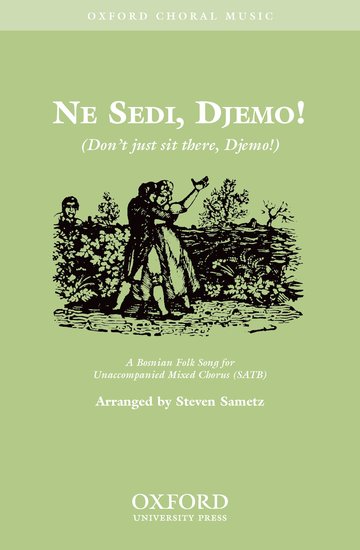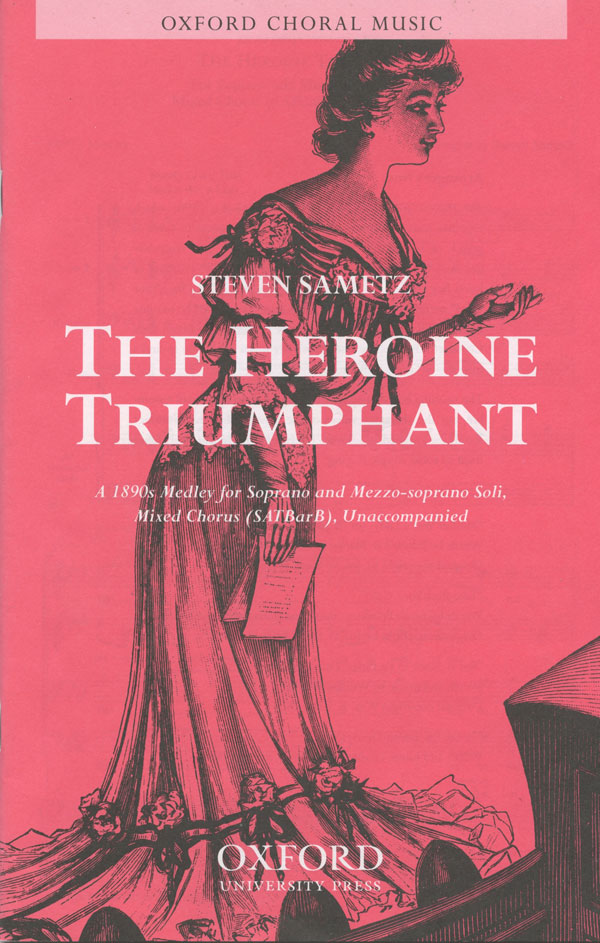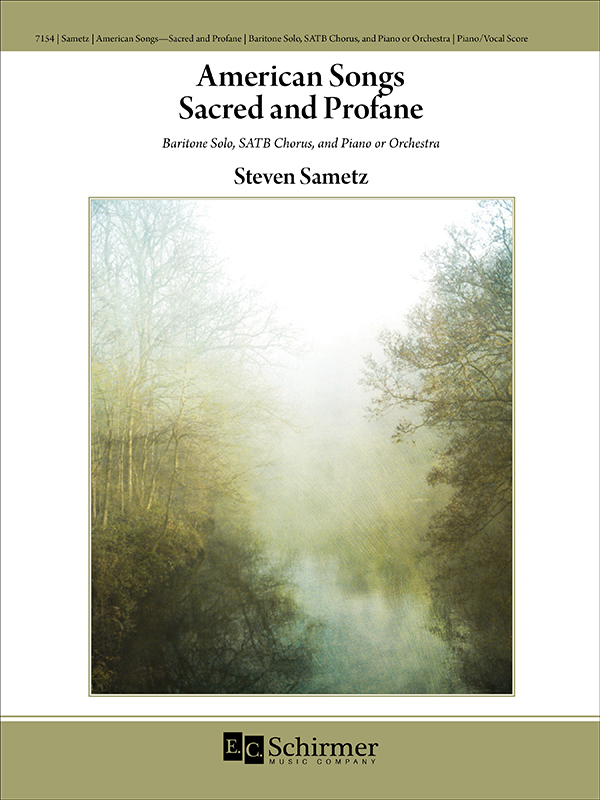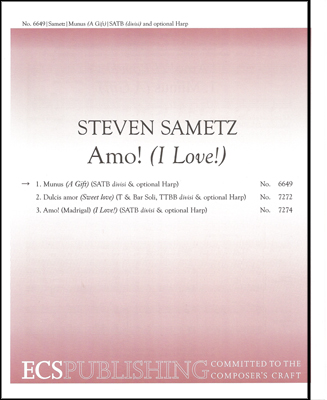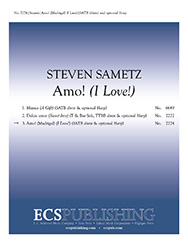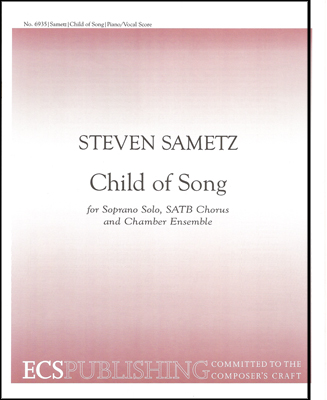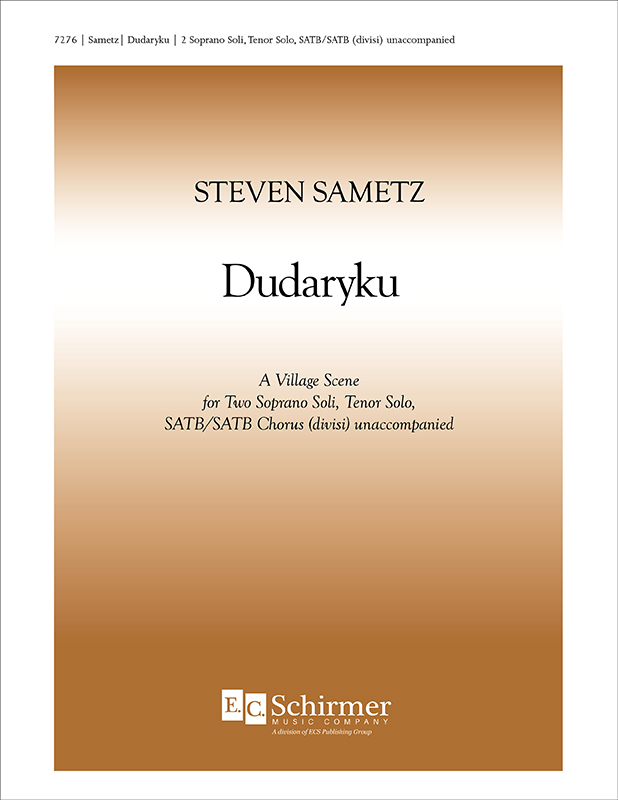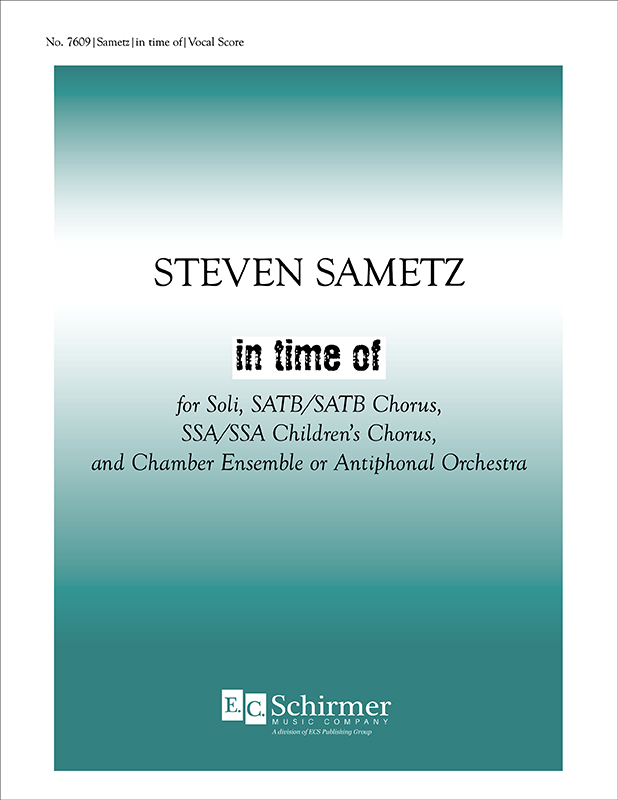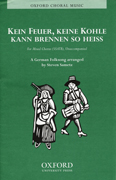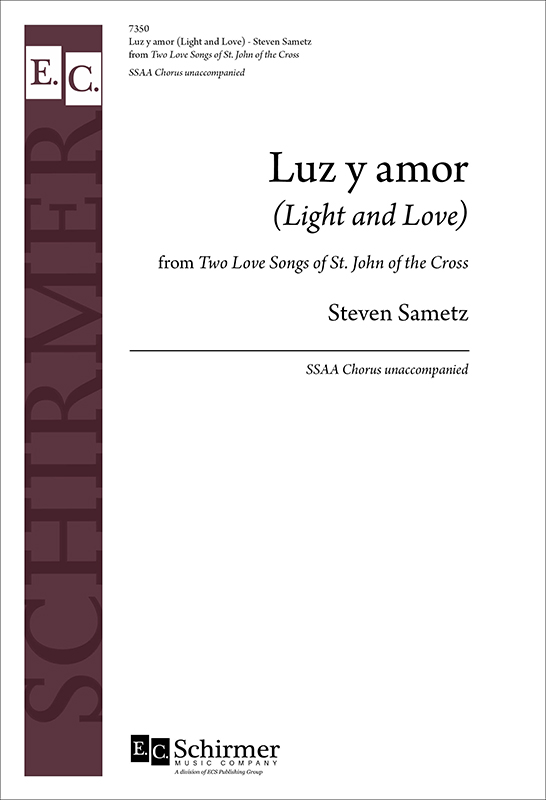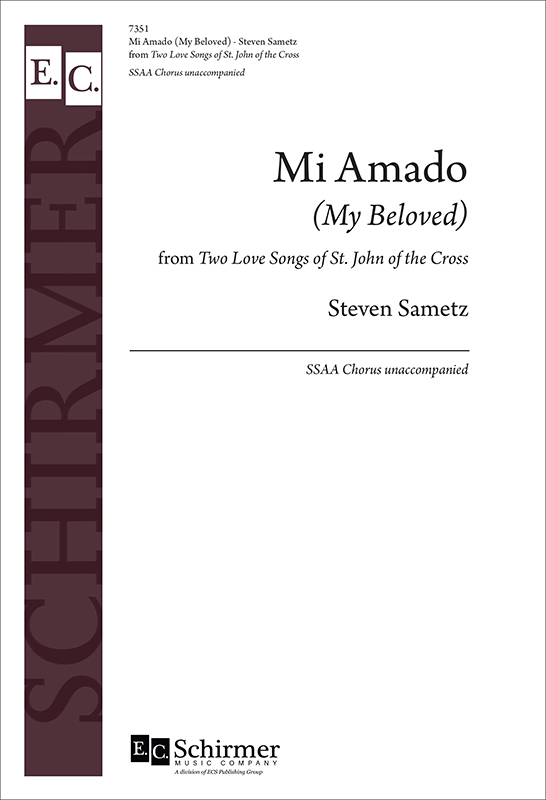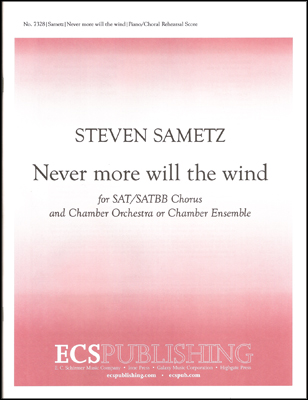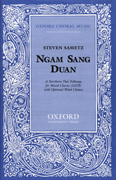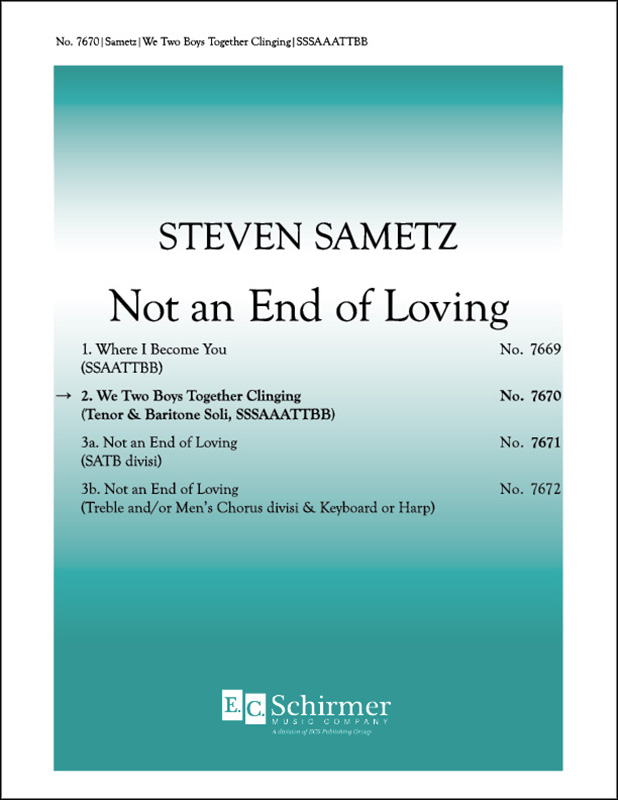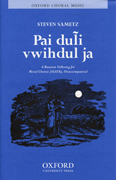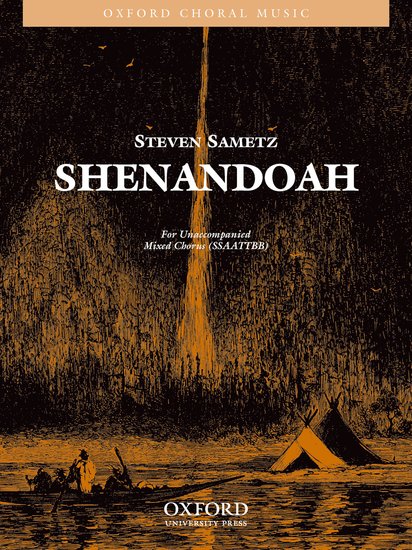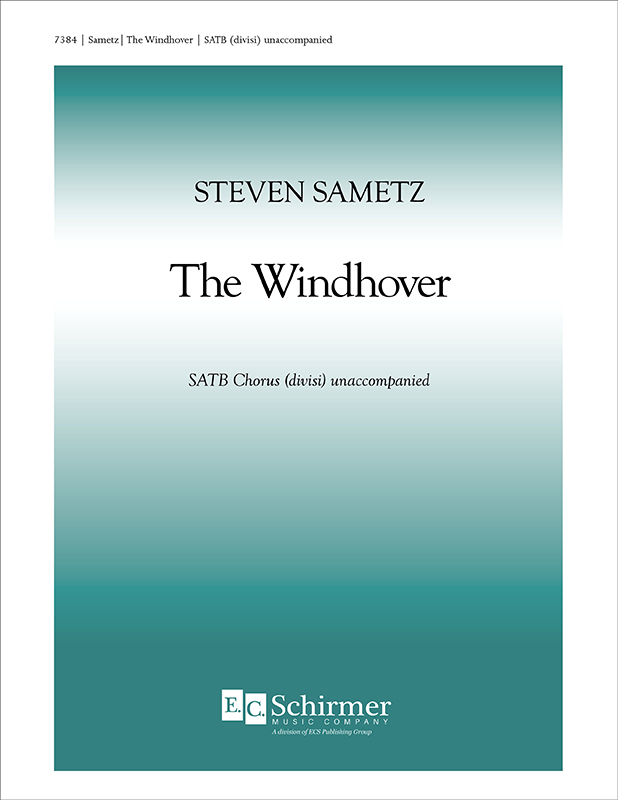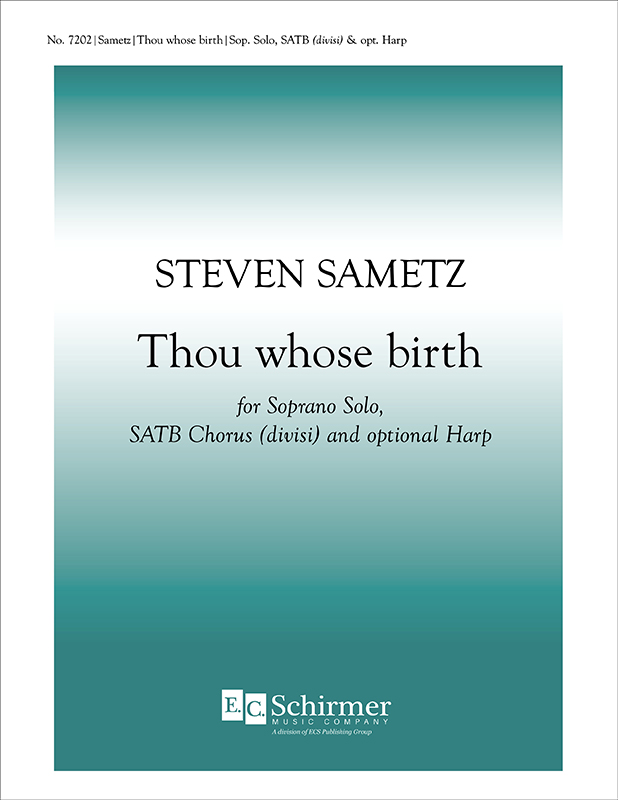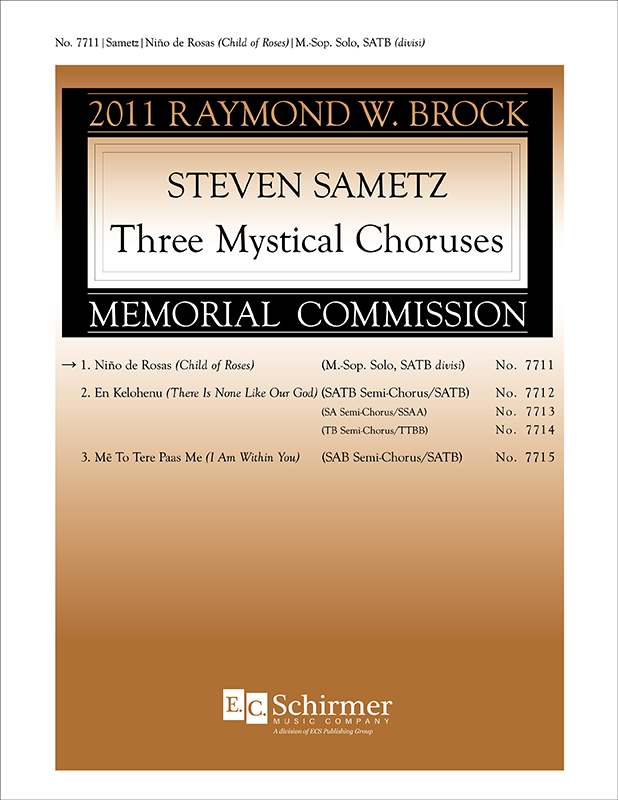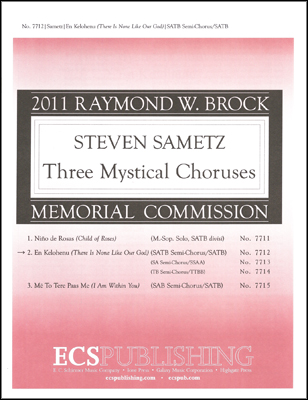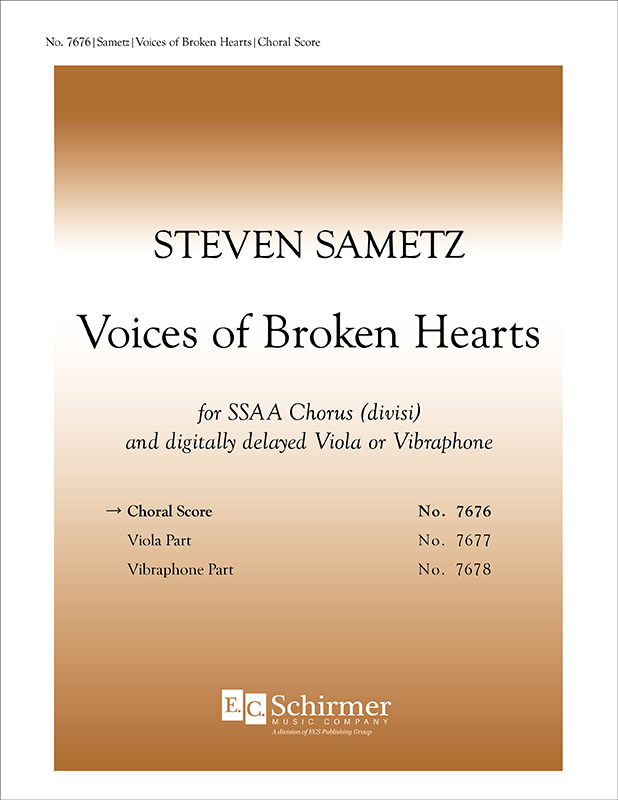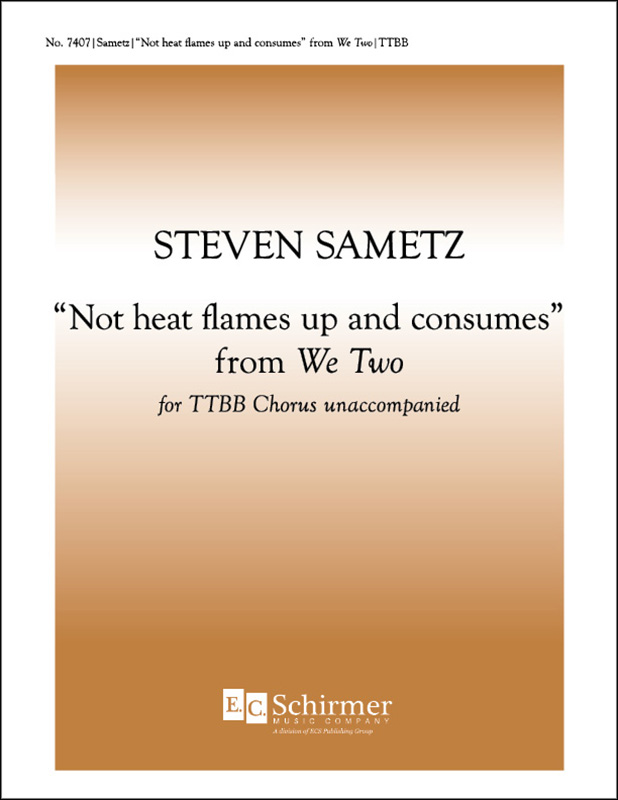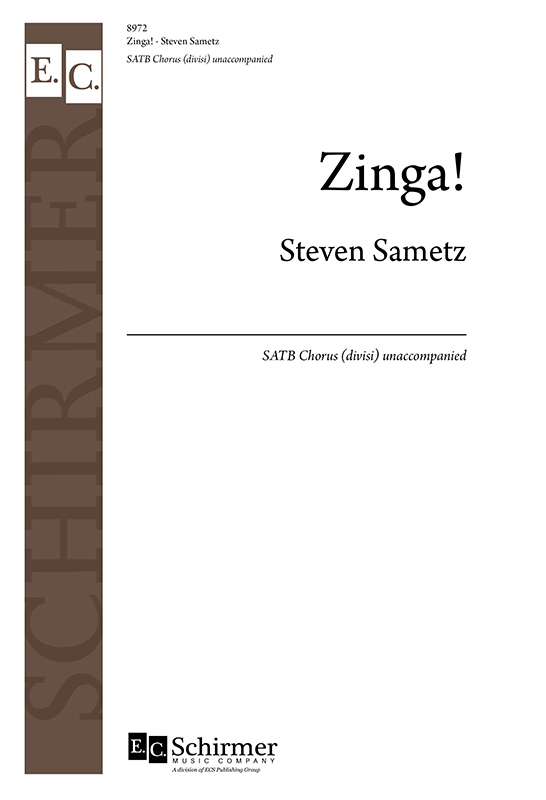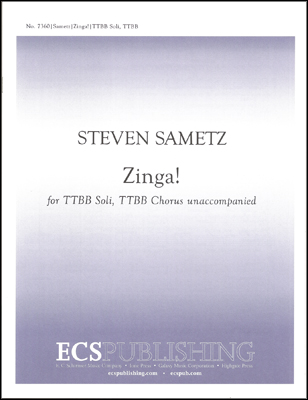In Celebration of the Human Voice - The Essential Musical Instrument
Home | Doo Wop | Barbershop | World | Contemporary | Christian | Vocal Jazz | Choral | Christmas | Instructional | Arrangements
Classical | Opera | Musicals | Personality | Young Singers | Disney | Videos | Songs | The Artists

Steven Sametz
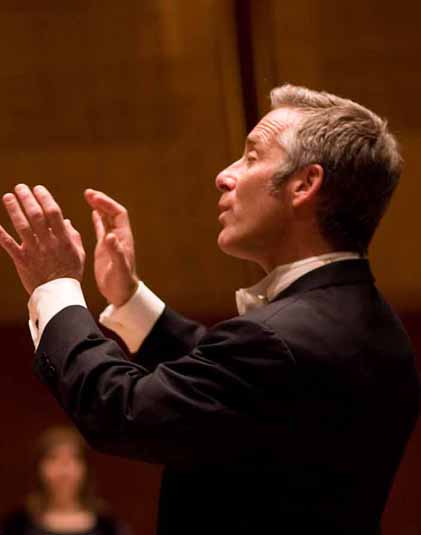
Steven Sametz has earned increasing renown in recent years as both composer and conductor. He is the Ronald J. Ulrich Professor of Music and director of Lehigh University Choral Arts, one of the country's premiere choral programs. He also serves as Artistic Director for the elite a cappella ensemble, The Princeton Singers and is the founding director of The Lehigh University Choral Composer Forum, a summer course of study designed to mentor emerging choral composers. Recent guest conducting appearances include the Taipei Philharmonic Foundation, the Berkshire Music Festival, the New York Chamber Symphony, and the Netherlands Radio Choir. Dr. Sametz' compositions have been heard throughout the world at the Tanglewood, Ravinia, Salzburg, Schleswig-Holstein, and Santa Fe music festivals. His in time of appears on the recent Grammy award-winning CD by Chanticleer, "Colors of Love," and his work may be heard on six other Chanticleer CDs Groups directed |
Arrangements | Recordings
Songbooks, Arrangements and/or Media
Displaying 1-3 of 3 items.
Steven Sametz : World Folk Songs Steven Sametz has earned increasing renown in recent years as both composer and conductor. He is the Ronald J. Ulrich Professor of Music and director of Lehigh University Choral Arts, one of the country's premiere choral programs. He also serves as Artistic Director for the elite a cappella ensemble, The Princeton Singers and is the founding director of The Lehigh University Choral Composer Forum, a summer course of study designed to mentor emerging choral composers. This is a wonderful collection of folk songs with songs from Bosnia, Thailand, Russia and Germany that will add a nice international flavor to your program. Songlist: Kein Feuer, Keine Kohle, Kann Brennen, So Heiss, Ne Sedi, Djemo, Ngam Sang Duan, Pai Duli Vwihdui Ja Steven Sametz : The Heroine Triumphant A medley of songs (opening with a barbershop quartet) from the 1890's with soprano and mezzo-soprano soloists. The Heroine Triumphant links four songs which together trace the story of a young girl who comes to town in search of her brother ("Mother Was a Lady"); she is cruelly deceived by a drummer, an unscrupulous low-life, claiming to know her brother. He proposes marriage, but in "Take Back Your Gold" we find his intentions are less than honorable. The heroine finds herself alone and cast out in "She Is More To Be Pitied Than Censured." Finally, she rises above her misery and woe to find a new life in "Ta-ra-ra-Boom-de-ay!" The opening barbershop quartet may be sung by a small ensemble, but the character voices of the narrator and the drummer should be assigned to soloists. The Heroine Triumphant easily lends itself to some simple staging. Fun! Songlist: Mother Was A Lady, Take Back Your Gold, She Is More To Be Pitied Than Censured, Ta-ra-ra-Boom-de-ay Steven Sametz : American Songs: Sacred and Profane Set to poetry by Jeremy Driscoll and Peter Elliot, this song cycle is both whimsical and tender. The three movements are titled, "A Way of Talking To A Dog That You Don't Know," "Blood Love," and "At Being Buried, My Surprise." It can be performed with piano or with orchestra (2.2.2.2/2.2.1.1./Percussion (3 players,) Harp, Piano/Celesta and Strings.) The SATB chorus (preferably offstage) appears in No. 3 only. Duration: 26 min Songlist: A Way of Talking To A Dog That You Don't Know, Blood Love, At Being Buried, My Surprise |
Displaying 1-23 of 23 items.
Amo! (I Love!) was conceived as a trilogy. However, the three parts may be performed separately, unaccompanied or with harp.
Harp Part: 7031
Amo! (I Love!) was conceived as a trilogy. However, the three parts may be performed separately, unaccompanied or with harp.
Harp Part: 7275
Steven Sametz's remarkable stylized treatment of this traditional spiritual with its powerful solo and haunting choral writing will leave audiences staggered. Requires an accomplished soloist (tenor or possibly alto) and a strong choir. Jo-Michael Scheibe Choral Series.
Dudaryku (The Piper) was introduced to me by my friend Natalka Pavlovsky as 'the Ukrainian version of Der Leiermann' (The Organ Grinder). Like Schubert's famous Lied, this Ukrainian folksong hauntingly evokes the song of the town musician using the simple drone of his instrument. Dudaryku pays homage to the beloved piper who once played for the townspeople. Several factors coalesced to create Dudaryku. I considered the many traditions of folksongs in western music: the simple folksong without accompaniment; arrangements (like the 19th century arrangement of Dudaryku by Leontovich); and the composition of new work in a folk style (exemplified in works of Brahms and Stephen Foster). The intersection of these traditions - using the old, the borrowed, and the new - intrigued me Dudaryku begins with a newly composed setting of the folksong text which laments the loss of the treasured town musician. There is a transition, referencing Leon
Country: Ukraine
Orch version full score: #7614
parts: #7615
Chamber Ensemble full score: #7612
parts: #7613
A German Folksong about love.
Country: German
Set to the poetry of the 16th-century Spanish Carmelite priest, San Juan de la Cruz, this piece (and its companion, 7351) can read as secular love songs. Actually, however, they are religious allegory. "Luz y amor" ("Light and Love") appears to be about "a solitary bird," but contains five pieces of advice for those seeking a deeper relationship with God: always be aware of God's presence; strip away everything that is not God; be open and listen for the voice of the Holy One; let go of your own ambitions and attachments; and sing sweetly of the delight of Love. Duration: 2:30
Set to the poetry of the 16th-century Spanish Carmelite priest, San Juan de la Cruz (St. John of the Cross,) this piece (and its companion, 7350) can appear to be a secular love song. But it is actually religious allegory in which the Soul is singing to God. He is strong and magnificent as a mountain; comforting as the cool, shady woods; filled with unexpected delights like an exotic island; possesses her powerfully like a roaring river; thrills her with a touch like a breeze on the skin; fills her and satisfies her like a delicious meal; opens her eyes to the unexpected, like the dawn. As they rest together in the tranquil night, the soul delights in these feelings like being filled with glorious music that can truly be heard only in silence. In that moment, we are given a luxurious silence, surrounded by gorgeous music, in which we, too, may simply breathe, delight and rest in the presence of Love. Duration: 2:30
An atmospheric setting of a Northern Thai folk song. The song has a charming, simple tune clothed with rich harmonies, and a non-singing English translation is provided together with notes on pronunciation.
Country: Thailand
Derivative of #7423
Commissioned as part of the 25th anniversary celebration of the Lehigh University Choral Union (Bethlehem, PA) for Chanticleer
"I encountered The Windhover in graduate school, and it made such a strong impression, but was so daunting a work, that I waited nearly three decades to set it. Hopkins combines a poetic vocabulary drawn from his study of Welsh with a sense of the sacred inherent in his calling to the priesthood. The language Hopkins used to depict the central image of the poem, that of a falcon hovering on the air, is already so musical that it took some time for me to come to a harmonic vocabulary that I thought might express the essential ecstatic nature of the poem Hopkins wrote of an 'inscape' in his poetry, an inner landscape revealed behind the words themselves. The poems were intended to touch the unique interior life that words can only describe. For me, this is the realm where music is strongest. As the poet and storyteller Hans Christian Anderson wrote, 'where words fail, music begins.' As composers of words and music, we are called upon not merely to set words, but to enhance the i
Winner of the 2011 Raymond W. Brock Commission, by the ACDA
Winner of the 2011 Raymond W. Brock Commission, by the ACDA
Steven Sametz set Carl Sandburg's evocative poem "Clark Street Bridge" using digitally delayed vibraphone (or viola) to enhance the ghostly voices of broken hearts left in the mist of night.
A nonsense song which allows for simple staging if the individual singers make the nonsense into a language which only they understand--argumentative, fraternal, confrontational--whatever comes to mind.
![]() Vocal Harmony Arrangements - Home
Vocal Harmony Arrangements - Home
Christian | Gospel | Standards | Musicals | Specialty | World | Barbershop | Contemporary | Vocal Jazz | Choral | Christmas
Mixed Voices | Female | Male | 8 Parts | 6 Parts | 5 Parts | 3 Parts | 2 Parts | Medleys | Solo | Folio Series | New Releases
Select a Category |
Want to Sing? - Find a Chorus Near You
List of Choruses by State | List of Choruses by City

